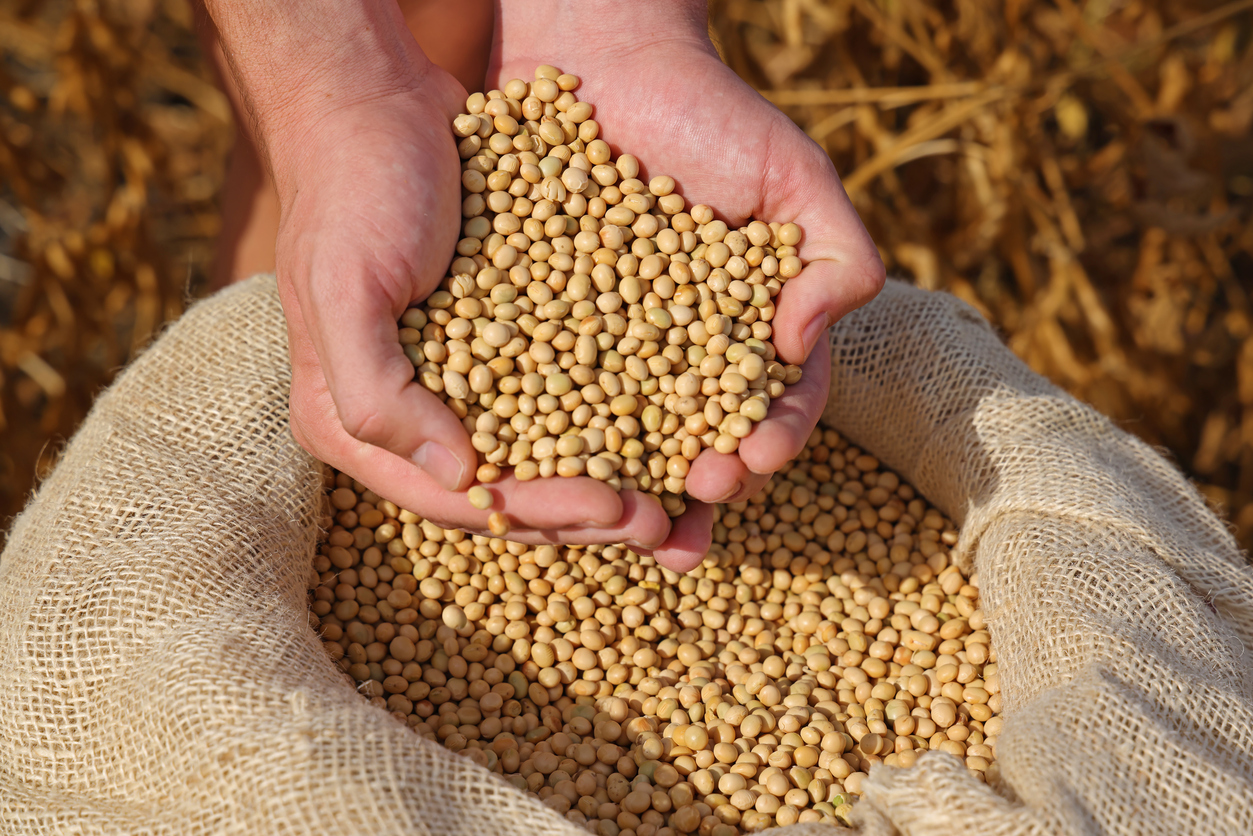
Gene Editing Helps Identify Genetic Module Regulating Soybean Seed Traits
August 27, 2025| |
Soybeans are a vital global crop used in everything from human food to industrial products. Improving soybean yield is crucial for global food security, but the genetic mechanisms that control key seed traits are still not fully understood.
A study by a research team at the Institute of Genetics and Developmental Biology, Chinese Academy of Sciences, investigated the role of the gene miR172a in soybean development. The researchers found that overexpression of this gene in soybeans led to a significant decrease in seed size and weight. The 100-grain weight of the modified soybeans dropped from 17.01 grams in the control group to a range of 6.02 to 9.23 grams. The protein content increased, indicating that miR172a plays a key role in regulating soybean seed phenotype and fatty acid and protein accumulation.
The researchers used CRISPR-Cas9 gene editing technology to construct ERF416 and ERF413 mutants to study the changes in soybean seed phenotype. The mutants had smaller seeds and lower 100-grain weight. However, they produced a significantly higher yield per plant, increasing by up to 31.8%. These mutants also showed a boost in fatty acid content, especially oleic acid (18:1), but a decrease in protein.
Overexpressing ERF416 resulted in larger seeds and an increase in 100-grain weight of up to 13% and led to a significant decrease in fatty acid content, particularly linoleic acid (18:2). The study found that ERF416 and ERF413 regulate other genes and inhibit the gene GmKIX8-1, which promotes seed enlargement, and activate the gene GmSWEET10a. The study found that the miR172a-ERF416/413 module can regulate soybean seed size and weight, and may regulate its fatty acid content through different pathways.
For more details, read the article on the Chinese Academy of Sciences website.
| |
You might also like:
- Study Unravels Leaflet Formation in Soybeans
- EU Authorizes Market Entry of GM Soybean MON 87705 × MON 87708 × MON 89788
- COGEM Releases Advice on GM Soybean 305423xDAS-44406-6
Biotech Updates is a weekly newsletter of ISAAA, a not-for-profit organization. It is distributed for free to over 22,000 subscribers worldwide to inform them about the key developments in biosciences, especially in biotechnology. Your support will help us in our mission to feed the world with knowledge. You can help by donating as little as $10.
-
See more articles:
-
Gene Editing Supplement (August 27, 2025)
-
Research and Tools
- CRISPR Reveals Key to Development of Purple Rice
- Gene Editing Helps Identify Genetic Module Regulating Soybean Seed Traits
- Scientists Use CRISPR to Identify Gene Linked to Waterlogging Resilience in Alfalfa
- Gene Editing and Metabolic Profiling Elucidate Stomatal Development in Maize
-
Read the latest: - Biotech Updates (January 28, 2026)
- Gene Editing Supplement (January 28, 2026)
- Gene Drive Supplement (February 22, 2023)
-
Subscribe to BU: - Share
- Tweet

